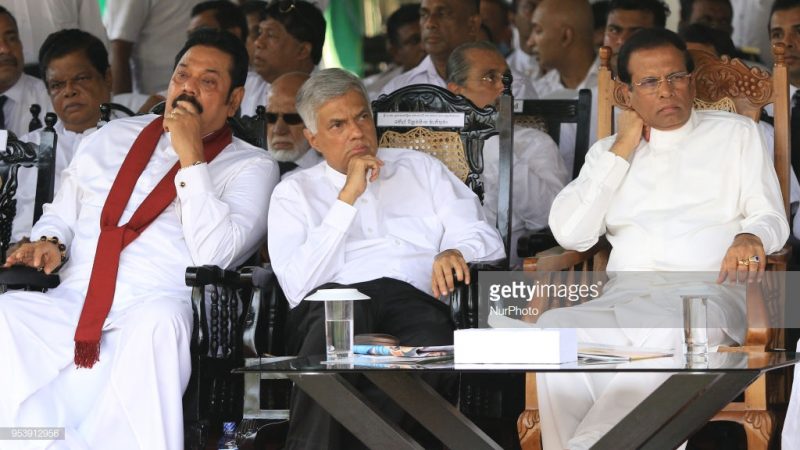Premiership Stakes – the race to 113 votes in Parliament

October 27, 2018 (LBO) - A few hours ago, Sri Lankans were throttled by one of the most shocking political developments in the country's tumultuous modern history.
Stunning the whole country, President Maithripala Sirisena swore in former President Mahinda Rajapaksa as the Prime Minster. First reports of this development were met by disbelief, many even thought it was fake news.
Just six months ago, Sri Lanka's Prime Minister Ranil Wickremesinghe had handily defeated a no-confidence motion in Parliament strengthening his position in government.
Both sides will present legal arguments on whether the President had the power to remove the PM and swear in another, and the ultimate arbiter of the legality of these actions may have to be the Supreme Court.
However, in the mean time make no mistake, the current sprint is the race to 113 votes out of a 225 member Parliament. If 113 votes are obtained by either side in a vote of confidence, the supremacy of Parliament will have been exercised.
There is a reason why the process of removal of the Prime Minister was not done through a no confidence motion, and it is highly likely because there were not 113 votes in parliament secured to vote for it.
Instead, with the President forcing the issue by swearing in a new PM, it was likely envisioned that 113 votes would then be able to be secured to support the move. Thus the race to 113 has officially started.
The UPFA group numbers 95 in Parliament, so they will need a total of 18 crossovers from the UNP and minority parties in order to secure a Parliamentary majority to support Mahinda Rajapaksa as the Prime Minister of Sri Lanka. This number of 18 crossovers is assuming that no members of the UPFA cross over and support Ranil Wickremesinghe.
The UNP will likely move quickly to show their support for Ranil Wickremesinghe as PM. His position is still strong with a large majority of MPs having voted for him just 6 months ago in the no-confidence motion. Maninda Rajapaksa has yet to be tested in Parliament, and as everyone knows, Sri Lankan legislators can be a fickle lot. It is almost assured that many MP's will be inclined to vote for the side that they think will win. Depending on which way the winds blow in the next 48 hours, those fair-weather supporters can land on either side.
It is also likely that the UNP will mass protests in order to harness the power of the people to support the supremacy of Parliament. The Youth wing of the JO recently organised a large protest in Colombo that had mixed reviews. If the UNP can mobilise crowds much larger than the JO protest, it could signal which way the wind is blowing to the legislators who are on the fence.
Whatever it is, the legitimacy of Ranil Wickremesinghe's UNP led government will be decided in days if not hours. We will soon see who has the 113 votes and the Premiership that comes with them.
